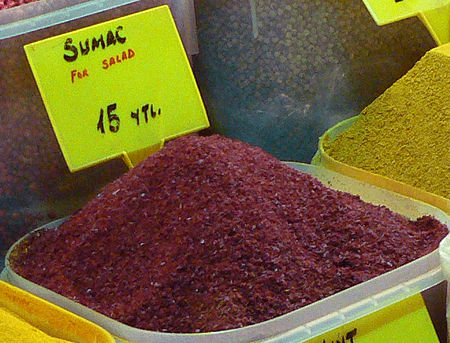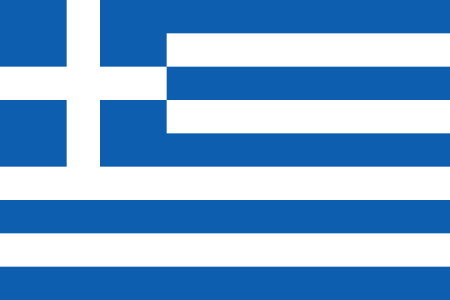William Coventry
|
Read other articles:

Related species of plants in the family Anacardiaceae For poison sumac, see Toxicodendron vernix. For other uses, see Sumac (disambiguation). Sumak redirects here. For the village in Turkey, see Sumak, Pertek. SumacTemporal range: Ypresian–Recent PreꞒ Ꞓ O S D C P T J K Pg N Sumac fruit in the autumn season Scientific classification Kingdom: Plantae Clade: Tracheophytes Clade: Angiosperms Clade: Eudicots Clade: Rosids Order: Sapindales Family: Anacardiaceae Subfamily: Anacardioideae Genus: …

Dual-sector university in Victoria, Australia Federation University AustraliaCoat of armsLatin: Foederatio Universitatis AustraliaeOther nameFedUni[1]Former nameIndependent colleges[2](1870–1976)Ballarat College of Advanced Education[3](1976–1990)Ballarat University College of the University of Melbourne[4](1990–1994)University of Ballarat[5](1994–2014)MottoDare to be DifferentTypePublic research universityEstablished1870 (established)[6]19…

Данио-рерио Научная классификация Домен:ЭукариотыЦарство:ЖивотныеПодцарство:ЭуметазоиБез ранга:Двусторонне-симметричныеБез ранга:ВторичноротыеТип:ХордовыеПодтип:ПозвоночныеИнфратип:ЧелюстноротыеГруппа:Костные рыбыКласс:Лучепёрые рыбыПодкласс:Новопёрые рыбыИнфр�…

لمعانٍ أخرى، طالع سانت لويس (توضيح). سانت لويس الإحداثيات 43°24′31″N 84°36′41″W / 43.408611111111°N 84.611388888889°W / 43.408611111111; -84.611388888889 [1] تقسيم إداري البلد الولايات المتحدة[2][3] التقسيم الأعلى مقاطعة غراتيوت خصائص جغرافية المساحة 9.145821 ك…

مدينة الهاشمية الإحداثيات 32°21′51″N 35°39′35″E / 32.36416667°N 35.65972222°E / 32.36416667; 35.65972222 تقسيم إداري البلد الأردن التقسيم الأعلى محافظة عجلون خصائص جغرافية المساحة 6.25 كيلومتر مربع تعديل مصدري - تعديل 32°21′51″N 35°39′35″E / 32.36417°N 35.65972°E …

Carl Maria von Weber Carl Maria Friedrich Ernst, Freiherr von Weber (18 November 1786-5 Juni 1826) merupakan seorang komposer, konduktor, pemain piano, dan kritikus berkebangsaan Jerman. Weber mempekerjakan, terutama opera yang ia punya ialah Der Freischütz, Euryanthe dan Oberon sangat memengaruhi perkembangan opera Klasik di Jerman. Karya Opera Die Macht der Liebe und des Weins, J. Anh. 6, 1798-9, lost; Das Waldmädchen, (Das stumme Waldmädchen), J. Anh. 1, 1800, frags; libretto by C. von Ste…

Systemic criticism of Google and its service Criticism of Google includes concern for tax avoidance, misuse and manipulation of search results, its use of others' intellectual property, concerns that its compilation of data may violate people's privacy and collaboration with the US military on Google Earth to spy on users,[1] censorship of search results and content, and the energy consumption of its servers as well as concerns over traditional business issues such as monopoly, restraint…

Aepyornis Periode Kuarter PreЄ Є O S D C P T J K Pg N ↓ Kerangka dan telur Aepyornis maximusStatus konservasiPunah TaksonomiKerajaanAnimaliaFilumChordataKelasAvesOrdoAepyornithiformesFamiliAepyornithidaeGenusAepyornis I. Geoffroy Saint-Hilaire, 1851[1] Tipe taksonomiAepyornis maximusI. Geoffroy Saint-Hilaire 1851 Spesies A. hildebrandti Burckhardt 1893[1] A. maximus I. Geoffroy Saint-Hilaire 1851[1] DistribusiPeta Madagaskar yang menunjukkan dimana spesimen A. hil…
Pama–Nyungan language of Queensland Australia This article includes a list of general references, but it lacks sufficient corresponding inline citations. Please help to improve this article by introducing more precise citations. (August 2015) (Learn how and when to remove this message) Guugu YimithirrPronunciation[ˈkuːku ˈjɪmɪt̪ɪr]RegionHopevale, QueenslandEthnicityGuugu Yimithirr, Koko NjekodiNative speakers810 (2021 census)[1]Language familyPama–Nyungan Paman?Ya…

لمعانٍ أخرى، طالع الدور (توضيح). 34°27′27″N 043°47′56″E / 34.45750°N 43.79889°E / 34.45750; 43.79889 الدور تقسيم إداري البلد العراق [1] التقسيم الأعلى محافظة صلاح الدين إحداثيات 34°27′27″N 43°47′56″E / 34.4575°N 43.798888888889°E / 34.4575; 43.798888888889 الرمز الجغرافي 99768 تع�…

Computer built using discrete transistors IBM 1620 A transistor computer, now often called a second-generation computer,[1] is a computer which uses discrete transistors instead of vacuum tubes. The first generation of electronic computers used vacuum tubes, which generated large amounts of heat, were bulky and unreliable. A second-generation computer, through the late 1950s and 1960s featured circuit boards filled with individual transistors and magnetic-core memory. These machines rema…

此條目介紹的是电视剧。关于同名小说,请见「吸血鬼日记 (小说)」。 吸血鬼日记The Vampire Diaries第二季Logo类型青春超自然恐怖开发凯文·威廉森朱莉·皮莱克编剧L. J. 史密斯(英语:L.J. Smith (author)) (原著)主演妮娜·杜波夫保羅·韋斯利伊恩·桑莫哈德邁克·馬拉基史蒂芬·麦昆(英语:Steven R. McQueen)莎拉·砍寧(英语:Sara Canning)卡特琳娜·格蘭厄姆坎迪丝·阿科拉扎…

Overview of urbanization in India This article needs to be updated. Please help update this article to reflect recent events or newly available information. (June 2016) Urbanization in Outskirts of Kolkata Urbanization in India began to accelerate after independence, due to the country's adoption of a mixed economy, which gave rise to the development of the private sector. The population residing in urban areas in India, according to the 1901 census, was 11.4%,[1] increasing to 28.53% by…

DioclezianoImperatore romanoTesta di Diocleziano, da Nicomedia, conservata ai Musei archeologici di Istanbul Nome originaleGaius Aurelius Valerius Diocletianus Regno20 novembre 284 (da solo)dal 1º aprile 286 come Augusto d'Oriente con Massimiano come Augusto d'Occidente[1] –1º maggio 305 Tribunicia potestasrivestita 22 volte: la prima il 20 novembre del 284, poi il 10 dicembre del 284 e in seguito annualmente ogni 10 di dicembre fino al 304[2] Cognomina ex virtuteAdi…

لوكيسيا خريطة الموقع تقسيم إداري البلد اليونان [1] خصائص جغرافية إحداثيات 38°28′47″N 23°26′54″E / 38.47981944°N 23.44846111°E / 38.47981944; 23.44846111 الارتفاع 170 متر السكان التعداد السكاني 877 (resident population of Greece) (2021)1010 (resident population of Greece) (2001)964 (resident population of Greece) (1991)1161 (resident popul…

American musician, songwriter, and record producer Adrian BelewBelew in 2022Background informationBirth nameRobert Steven BelewBorn (1949-12-23) December 23, 1949 (age 74)Covington, Kentucky, U.S.GenresProgressive rockindustrial rockexperimental rocknew waveOccupationsMusiciansingersongwriterrecord producerInstrumentsGuitarvocalsdrumsbassYears active1977–presentLabelsIslandAtlanticCaroline/VirginMember ofGizmodromeFormerly ofKing CrimsonFrank ZappaDavid BowieTalking HeadsTom Tom ClubLauri…

1997 video game 1997 video gameBreath of Fire IIICover art of PlayStation Portable releaseDeveloper(s)CapcomPublisher(s)CapcomEU: Infogrames (PS1)Director(s)Makoto IkeharaProducer(s)Yoshinori TakenakaHironobu TakeshitaProgrammer(s)Tatsuya KitabayashiArtist(s)Tatsuya YoshikawaTōru YamashitaWriter(s)Makoto IkeharaComposer(s)Yoshino AokiAkari KaidaSeriesBreath of FirePlatform(s)PlayStationPlayStation PortableReleasePlayStationJP: September 11, 1997NA: May 18, 1998[1]EU: October 8, 1998Play…

Disambiguazione – Se stai cercando altri significati, vedi Ladri di biciclette (disambigua). Ladri di bicicletteEnzo Staiola in una scena del filmLingua originaleitaliano Paese di produzioneItalia Anno1948 Durata93 min Dati tecniciB/Nrapporto: 1,37:1 Generedrammatico RegiaVittorio De Sica SoggettoCesare Zavattini SceneggiaturaCesare Zavattini, Vittorio De Sica, Suso Cecchi d'Amico, Oreste Biancoli, Adolfo Franci, Gerardo Guerrieri e Gherardo Gherardi Produttore esecutivoVittorio De Sica Casa d…

American Christian book publishing company For the Cambridge library, see Tyndale House (Cambridge). Tyndale HouseFounded1962FounderKenneth N. TaylorCountry of originUnited StatesHeadquarters locationCarol Stream, IllinoisPublication typesBooksImprintsTyndale Momentum, SaltRiverNo. of employeesapproximately 250Official websitewww.tyndale.com The main office building at the Tyndale House headquarters in Carol Stream, Illinois (in the Chicago area). The headquarters complex also features a distrib…

SariJenisminuman, jus, minuman tak beralkohol dan sugary drink (en) Komposisibuah dan sayuran Penyiapanekstraksi jus [sunting di Wikidata] Untuk penggunaan lain, lihat Sari Jus atau sari adalah minuman yang terbuat dari ekstraksi atau pemerasan cairan alami yang terkandung dalam buah dan sayuran. Itu juga bisa merujuk pada cairan yang dibumbui dengan konsentrat atau sumber makanan biologis lainnya, seperti daging atau makanan laut, seperti jus kerang. Jus biasa dikonsumsi sebagai minuman ata…
